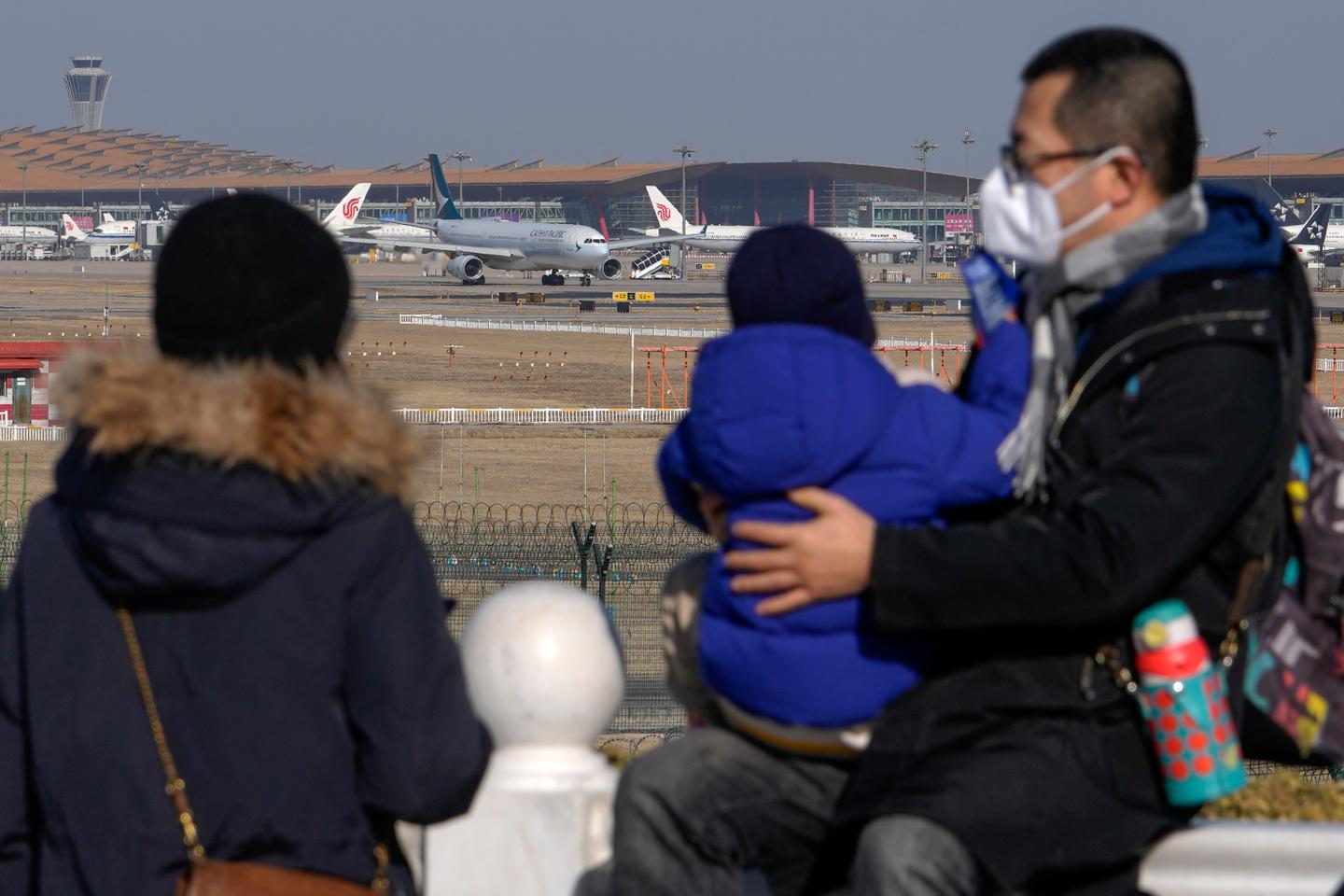
China suspends issuance of visas to Japanese and South Koreans
On Tuesday (January 10th), Chinese embassies suspended the issuance of new visas to South Koreans and Japanese. An apparent retaliatory decision was taken, after the two countries recently required Covid-19 screening tests for travelers from China. The Seoul notice, posted on the embassy’s WeChat account, states:
Embassies and consulates in Korea will suspend the issuance of short-stay visas to Korean nationals. Adding to these procedures “It will be amended based on Seoul’s removal of discriminatory entry restrictions against China.”
China She gradually ended her health policy from the beginning of December Zero Covid, very restrictive, and since January 8th lifted quarantine measures for international travellers. This relaxation, which coincided with a strong wave of Covid-19 infections in China, alarmed the international community. Last week, China’s foreign ministry threatened to take countermeasures against countries that announced new virus testing requirements targeting travelers from China.
Because, in addition to Japan and South Korea, many other countries, including the United States, the United Kingdom, France, Italy and Spain, have tightened border controls. In December, you must avoid a series of sanitary restrictions for voyageurs with provenance in the Chinese continent, no visa requirements and requirements, and obligation to present tests for depistage, invoquant une recrudescence from the case of Covid-19. In China.
“Political Maneuvers” and “Discriminatory Practices”
South Korean Foreign Minister Park Jin told his Chinese counterpart, Qin Gang, on Monday, January 9, that these restrictions were imposed on… “scientific basis”. The ministry said in a separate statement that Seoul did so Previously traded with China About these measures, and that the information was Share it transparently with the international community..
However, the reasons for targeting South Korea and Japan today have not been specifically stated at this time, nor whether the suspension will extend to other countries. The Chinese Embassy in Tokyo only said that the issuance of visas has been suspended. The announcements appear to only apply to new applicants, with nothing said about people who currently hold visas.
For its part ruled the Chinese Ministry of Foreign Affairs “regrettable” that “Some countries still maintain discriminatory entry restrictions against China”. Ministry spokesman Wang Wenbin said the country “extreme contrast” For these restrictions and “I took reciprocal measures.” And to add:
We once again call on relevant countries to take scientific and appropriate measures based on facts. These measures should not be used for political maneuvering and there should be no discriminatory practices. »
According to the Japanese press service kyudo, a travel agency in Tokyo said that it could not apply for almost any kind of Chinese visa after receiving the notification. Reservations for visa procedures became unavailable on the China Visa Application Service Center website on Tuesday.
The Chinese account for only 7.5% of the foreign tourists in South Korea
Seoul has reduced the number of flights from the country, which are now limited to Incheon International Airport, which is located about fifty kilometers west of Seoul.
Test your general knowledge with writing “the world”
to discover
Travelers from China, Hong Kong and Macau must present a negative test for Covid-19 before they can board a flight to South Korea. Authorities said Chinese visitors are also subject to a test upon arrival, and must self-quarantine for a week if they test positive. Only government officials, diplomats and some important humanitarian and commercial trips are entitled to a short-stay visa in South Korea, until the end of January.
According to official figures, 2,224 Chinese nationals with short-stay visas have arrived in South Korea since January 2, and 17.5 percent of them tested positive upon arrival. A Chinese national who contracted SARS-CoV-2 upon arrival in Seoul refused to undergo quarantine and fled, leading to a two-day manhunt that made headlines. Local media reported that the person, whose identity was not revealed but described as a tourist who came for medical reasons, was finally found and will be questioned this week.
The ministry told AFP on South Korean culture that the number of Chinese tourists in South Korea decreased from 6.02 million in 2019 to 200,000 from January to November 2022, representing only 7.5% of foreign tourists. In 2019 and 2020, tourists from China accounted for the largest proportion of foreign tourists visiting South Korea, at 34.4% and 27.2% respectively, according to official data from Seoul.

“Unapologetic pop culture trailblazer. Freelance troublemaker. Food guru. Alcohol fanatic. Gamer. Explorer. Thinker.”
